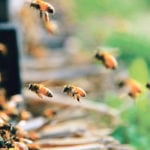Costco is saying no to neonics. The grocery store chain, with more than 600 stores in the United States and Canada, said in May that it wants producers of fruits, vegetables and garden plants to stop using neonicotinoids, a class of insecticides commonly known as neonics. “Suppliers are encouraged to phase out the use of […] Read more
Tag Archives neonicotinoids
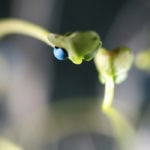
Decision looming for neonics
Health Canada agency will rule this summer on fate of chemicals based on the threat to aquatic insects
The fate of two neonicotinoid seed treatments, applied to almost all of the canola and corn seeds in Canada and a portion of the soybean seeds, will be decided this summer. For the last 18 months Health Canada has been studying neonicotinoid insecticides and assessing the risk to aquatic insects. The two products are clothianidin, […] Read more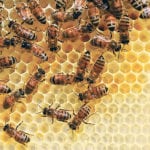
Neonic risk to bees found
A food safety group in Europe says most uses of neonicotinoid pesticides represent a risk to wild bees and honeybees. The European Food Safety Authority has updated its risk assessment of three neonicotinoids: clothianidin, imidacloprid and thiamethoxam. The three pesticides are currently subject to restrictions in the EU because of the threats they pose to […] Read more
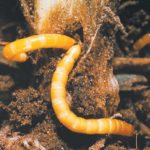
No imidacloprid decision expected till next year
Health Canada proposed last November to ban imidacloprid, an insecticide applied to fruit, vegetables, potatoes and many other crops across the country. Twelve months have passed since the announcement, but Canadian farmers who use the insecticide will have to wait another year to know if it’s banned or not. “Health Canada is reviewing an extensive […] Read more
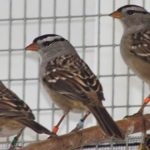
Sask. study links neonicotinoids to songbird health
Scientists have conducted dozens of studies on neonicotinoid seed treatments and the potential impact on bee health. Now, researchers at the University of Saskatchewan have found that canola seed coated with imidacloprid, a type of neonicotinoid, can be toxic to songbirds. “Imidacloprid dosed birds exhibited significant declines in fat stores and body mass and failed […] Read more

Neonics linked to songbird deaths
Scientists have conducted dozens of studies on neonicotinoid seed treatments and the potential impact on bee health. Now, researchers at the University of Saskatchewan have found that canola seed coated with imidacloprid, a type of neonicotinoid, can be toxic to songbirds. “Imidacloprid dosed birds exhibited significant declines in fat stores and body mass and failed […] Read more

Neonic levels in honey below accepted guidelines: expert
The Swiss study was misleading and the methodology used to measure concentrations was ‘illogical,’ says toxicologist
On Oct. 9, CBC news posted a story on its website suggesting honey is contaminated with insecticides. The story was based on a Swiss study that analyzed honey samples from around the globe. The study, published in the journal Science, found that 75 percent of honey contains neonicotinoids, a class of insecticides commonly used as […] Read more
New bee study points finger at neonicotinoid
WINNIPEG, Aug. 15 – A commonly used neonicotinoid pesticide is being blamed in a new report for increasing bumblebee’s risk of extinction. Ontario researcher Nigel Raine, at the University of Guelph, said thiamethoxam can reduce the chances of bumblebee queens starting new colonies by about 25 per cent. The results of the study were published […] Read more

Neonic hearings get variety of opinions
The Pest Management Regulatory Agency’s decision last fall to phase out imidacloprid within three to five years continues to reverberate through the agricultural community. The House of Commons agriculture committee began examining the issue during meetings last week, although the PMRA is a Health Canada agency. The PMRA made its decision based on harmful effects […] Read more

NFU urges ban on one neonic insecticide
The National Farmers Union says imidacloprid should be banned. In a release, the NFU said it backs Health Canada’s proposed phase out of imidacloprid, a neonicotinoid insecticide used on many Canadian crops. “We believe this proposed decision is a positive step and we fully support it,” the NFU said in a submission to Health Canada. […] Read more

